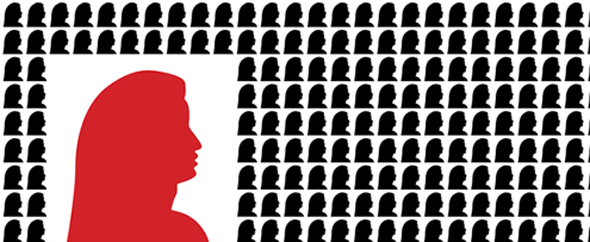The following comes from Indian Country Today. It is not a new story and that is what makes it even more horrible.
Walk4Justice: 720 Native Women Murdered and Missing

TORONTO – When they walked out of Vancouver’s Downtown Eastside on June 21, Gladys Radek and Bernie Williams prepared themselves for raw memories and painful moments on their fourth Walk4Justice across Canada.
Survivors themselves, Radek and Williams share the grief experienced by too many First Nations families who continue to search for answers and seek justice for their lost women and children.
They were surprised how many families came forward this year to report lost loved ones – 37, so far, 35 women and two men – increasing the number of murdered and missing Native women in Canada to an estimated 720.
And the journey’s not over.
Now 83 days into their winding 5,000 km trek to Ottawa, the Walk4Justice marchers were greeted by families and supporters as they stopped in small towns, reserves and cities. People also called, e-mailed and texted names and information to add to the database of murdered and missing women.
In a telephone interview from Toronto, Williams said they plan to arrive in Ottawa in time to address members of Parliament on September 19 at a rally to demand a national investigation into the shocking numbers of murdered and missing women. Organizers plan to bring 10 coffins from each province to Parliament Hill bearing the names of those lost.
“We help collect the data about missing women because the families don’t trust the police,” said Williams. “They’ve reported crimes and been ignored, so they reach out to us because they know they can trust us. We lost relatives, too.”
While exact numbers are hard to track, many women’s organizations in Canada agree that violent deaths and disappearances are increasing.
In addition to the estimated 720 Native women and children reported, several Native women’s organizations agree that the total number of all murdered and missing women in Canada tops more than 4,000.
According to Canada’s 2009 General Social Survey on Victimization, nearly 67,000 Aboriginal women aged 15 or older reported that they were victims of one or more violent crimes. And 63 percent of those surveyed were aged 15 to 34, illustrating the rise in violence toward young women and children.
“We founded the Walk4Justice in 2008 after my own niece, Tamara Chipman, vanished in 2005 from the Highway of Tears near Prince Rupert,” said Radek. Williams’ mother and two sisters were murdered in Vancouver’s Downtown Eastside, notorious for high rates of drug trafficking and violent crime.
Sadly, along the journey, Radek learned that another young relative, Angeline Eileen Pete, 24, was reported missing from North Vancouver. Her family is appealing to the public to help locate her, and a candlelight vigil was scheduled for September 11th at Hastings and Main in the Downtown Eastside.
“It really hurt me to hear about Angeline, and it angers me knowing this has happened to so many aboriginal women,” Radek said. “It doesn’t matter where we move in this country – we’re not safe anywhere. It’s about time the government and police quit talking, and actually do something. I’m afraid that to them, she’s just another dead Indian.”
Only days later, the decapitated body of another missing Native woman was found near Lake Winnipeg on the Sandy Bay First Nation in Manitoba. Roberta Dawn McIvor, 32, was killed July 30 when two teenage girls allegedly tried to steal her car while she was sleeping in it, according to police. Two girls, 15 and 17, are facing charges of manslaughter and are in custody.
Tragically, she was related to Helen Betty Osbourne, a Cree woman who was severely beaten, gang-raped and stabbed at least 50 times by four white men in 1971. Twenty years later, the Manitoba Justice Inquiry concluded that the murder of Helen Betty Osborne had been fueled by racism and sexism. The inquiry pointed out that Osborne might have been saved if police had taken action on a pattern of threats to Indigenous women.
The Walk4Justice marchers were asked to meet with McIvor’s family and honored her memory with the Lillooet Salish Women’s Warrior song. (link to video)
Williams said it’s been hard at times riding the emotional roller coaster of searching for answers and pushing for corrective action as they visited, cried and prayed with families on the route. Though the Walk4Justice is four years old, Williams has been on the frontlines of the issue for more than 25 years.
“I have no faith in the system,” she said. “There’s a raging war on women, and I can’t make sense of how the Canadian government is continuing to allow this to happen.”
Noting that Canada recently eliminated major funding for First Nations, education and women’s programs, Williams is skeptical about the intentions of politicians to help solve the problems.
“They know our communities are suffering, and yet they cut funding to help heal our children. We lose them to streets and to foster care – all those children in care are being raised by immigrants now,” said Williams. “They don’t want us to heal – it’s all about oppression. They’re trying to get rid of us because it ultimately comes right back to the land and the resources.”
The 93-day walk across Canada ends in Ottawa next week, where Radek and Williams will join hundreds of others to protest Canada’s failing policies to protect women and children, particularly Native women.
“We’re tired of wiping up the blood of our women on the streets of the Downtown Eastside and all across Canada,” said Radek. “The racism, murders and oppression have to stop – that’s message we’re taking to Parliament.”
Watch a video from the start of Walk4Justice in B.C.-Alberta here.
Watch a video from the Walk4Justice here.

No comments:
Post a Comment